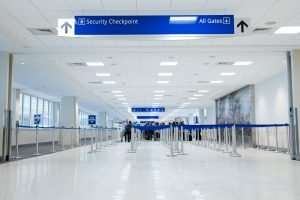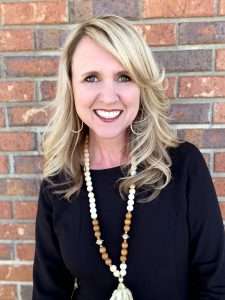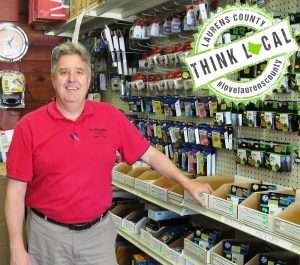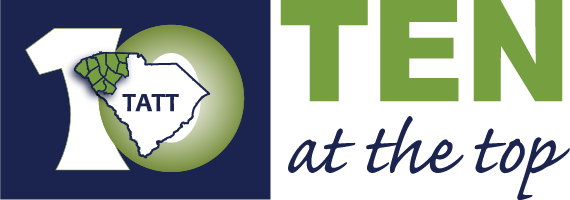
Apr 29, 2020 | Staying on Top, UpstateVibe365

Clemson University President James P. Clements
These are extraordinary times for all of us in higher education, for our country and, indeed, the world. I never imagined that we would be heading into what normally is among my favorite weeks of the year—May commencement—with virtually no one on our campus and no graduation ceremonies planned.
I have been struck over the past several weeks by just how much I miss our students and the energy they bring to campus. They are the reason all of us at Clemson University come to work every day, and their absence has made me appreciate them even more.
This isn’t the end to the academic year that any of us at Clemson wanted for our students, especially our Class of 2020 graduates, but I can’t help but be proud of the way the university and our students have responded to this unprecedented crisis.
I’m blessed to have great teammates across the university who continue to work every day—and many nights—to deliver on our promise of providing a world-class education to our students. Over the past six weeks, our faculty has moved mountains to provide online instruction to our students, while our staff has navigated more complex, real-time logistical challenges than I can count.
They’ve done it all with two goals in mind: The health and safety of our university community and the education of our students. And while we have, in my view, been extremely successful on both counts, our work is far from finished.
Clemson, like other universities across the state and nation, already has turned its sights on the upcoming academic year, which brings with it far more unknowns that we usually face. Just as communities and states are grappling with how best to “reopen,” universities are working through similar challenges.
We don’t have it figured out just yet, but if the past two months have confirmed anything it’s that the Clemson Family is up for a challenge. We are moving ahead with a goal of returning to campus in the fall, but with the knowledge that our new normal will almost certainly look different than the recent past.
As with all the decisions we have made thus far, our work to reopen the university to traditional instruction and on-campus activities will be guided by the best science and data around the pandemic. Nothing is more important than the safety of the Clemson community, and by extension, the Upstate communities our students and employees call home.
The last few months have been the most challenging in my 31 years of higher education, and the coming months are likely to provide more of the same. Even as I say that, however, I’m optimistic about the future for Clemson and our ability to weather this extended storm. We have the people and plans in place that we need to come out of this strong and in a position to resume the upward trajectory of this great university.
I am beyond grateful to our staff and faculty for their efforts to safeguard the well-being of our community, ensure the academic progress of our students and prepare the University to emerge from the crisis strong.
I’m also in awe of our students, especially those who will graduate this spring. Their spirit and determination are an inspiration, and they are the reason we all get up every day and do what we do.

Jim Clements, President

Apr 22, 2020 | Staying on Top, UpstateVibe365

Scott Carr, VP, Commercial Business & Communications, GSP Airport District
by Scott Carr, Vice President of Commercial Business and Communications at the Greenville Spartanburg Airport District
On March 11, 2020, the World Health Organization declared COVID-19 a global pandemic. With that declaration, efforts to prevent the virus from arriving in the U.S. through a few select gateway airports were intensified to include all airports. By March 13, some communities across the nation began to implement stay-at-home recommendations, and companies halted non-essential travel. More communities implemented restrictions in the days to follow.
The impact of the declaration and community stay-at-home guidance was immediately felt by the aviation industry. Passenger traffic declined, advance bookings dried up, and commerce inside the terminal building dropped off dramatically.
In response to these conditions, the Greenville-Spartanburg International Airport (GSP) immediately increased its cleaning and sanitation efforts over and above our normal 24/7 cleaning procedures. We added more hand sanitizers throughout the facility and placed signage in the terminal, in restrooms, and on flight information screens reminding travelers how to avoid the spread of germs. We briefed our staff on our procedures to address pandemics and evaluated supplies to ensure staff work areas remained clean and safe.
GSP set an all-time passenger record of 2.6 million customers in 2019 and reported higher traffic in both January and February of 2020. In the days following the pandemic declaration, the decline in passenger traffic was immediate. Within days, passenger activity at the nation’s airports declined by 95% versus the same period last year. Airlines cancelled flights but, in many cases, they were unable to do so fast enough to offset the rapid decline in passengers. Many flights routinely operated with one or two passengers or none at all.
Moving into April and May 2020, airlines have published schedules that are 70, 80, or 90% lower than they had originally planned just weeks before. A handful of airlines decided to stop operating entirely, as ticket bookings reached negative territory (i.e., the airlines were refunding more money than they were taking in).
Due to the nationwide decrease in demand for air travel, GSP made significant changes to our airport operation. Valet parking and shuttle services were suspended, we consolidated all parking operations from our eight lots to a single location—Parking Garage B—to conserve staff and utilities, and to ensure convenience for our travelers. Rental car facilities were consolidated but remained open for business.
 Restaurants and retail stores were initially consolidated to our Grand Hall for passenger convenience. Then, further consolidations were made as passenger activity continued to drop and restrictions on sit-down dining were put into place. The Kitchen by Wolfgang Puck, Vino Volo’s Market Bar, the MAG Escape Lounge, Chick-Fil-A, and Palmetto Distillery were all closed.
Restaurants and retail stores were initially consolidated to our Grand Hall for passenger convenience. Then, further consolidations were made as passenger activity continued to drop and restrictions on sit-down dining were put into place. The Kitchen by Wolfgang Puck, Vino Volo’s Market Bar, the MAG Escape Lounge, Chick-Fil-A, and Palmetto Distillery were all closed.
However, our goal was to continue to provide a minimal level of food, beverage, and retail options for employees and travelers during this crisis. A variety of concessions remain available both before and after the security checkpoint. Those restaurants include DC3 Hotdogs, Flatwood Grill, Dunkin Donuts, and Baskin Robbins, and they all operate on modified schedules. The retail stores include Hudson News, Tech on the Go, and Upstate Marketplace.
As the airport is considered critical essential infrastructure, the facility must remain fully operational and ready to provide for the passenger, cargo, military, and general aviation needs of the Upstate region. So it was imperative that we find a way to remain fully functional while absorbing significant losses in revenue and activity. To meet the call, the Greenville-Spartanburg Airport District (District) that operates GSP suspended work on certain projects that could be delayed, limited purchases to only essential items, canceled non-essential contracts, instituted a hiring freeze, shut down water features, and instituted other energy-saving measures.
To ensure that the airport remains positioned to serve the region’s needs once travel returns, work that was already in progress on significant capital programs including the construction of a new aircraft rescue and firefighting station, the rehabilitation of Aviation Parkway, and the construction of Economy Parking Lot C were allowed to continue.
To comply with social distancing and to ensure that the airport continues to operate, District staff were placed on teams that alternate weeks either working from the office and remotely at home. Staff members who are unable to conduct their jobs remotely remained working at the airport but follow social distancing guidelines.
Despite the decline in passenger activity, cargo operations have continued at a brisk pace. COVID-19 disrupted the supply chains for many major manufacturers including those in the Upstate. Those disruptions, in tandem with the cancellation of passenger flights from gateway airports to and from China and Europe, also stimulated demand for air cargo services. At GSP, less than daily service to Germany increased to daily, and the airport handled charter flights in support of local companies.
Looking forward, it is uncertain when passenger demand will return to pre-COVID-19 levels. Much will rely on the consumers’ willingness to take vacations and how fast corporations across the region return to the skies. Airlines that have reduced service at airports across the country will be looking to those communities and airports that are quick to respond. To that end, they will add back service that was lost in this crisis and more, should passenger demand warrant it.
It is our hope that the threat of COVID-19 passes quickly and that we will again see passenger activity levels that warrant re-opening all the parking, restaurants, shops, and other passenger services that have been temporarily consolidated or closed as a part of this crisis. Since 1962, GSP has provided for the air service needs of the region and we will continue to do in the future. We hope to see you very soon at GSP.

Apr 22, 2020 | Staying on Top, UpstateVibe365

Vee Daniel, President & CEO, Better Business Bureau of the Upstate
Better Business Bureau of the Upstate is warning and providing tips for the top six coronavirus scams. As the COVID-19 pandemic spreads, so does uncertainty and fear: two elements that con artists thrive on. During these stressful times, Vee Daniel, BBB President and CEO, recommends that consumers be especially alert to avoid falling for a scam.
- Phony Cures and Fake Masks
BBB Scam Tracker has received numerous reports of people receiving emails and messages claiming that, for a price, they can buy products the government is supposedly keeping secret—ways to prevent or cure coronavirus. Medical experts are working hard to find a coronavirus vaccine, but none currently exists.
For more information on coronavirus cure scams, see the article BBB Scam Alert: Afraid of Getting Sick? Don’t Fall for a Coronavirus Con.
- Economic Impact Payment (Stimulus Check) Scams
As soon as stimulus packages are announced and approved, scammers quickly get to work sending out fake economic impact checks and asking consumers to pay fees to get their money earlier than what the IRS has promised. These claims are false and open consumers to the risk of identity theft and outright theft of the funds in their bank account.
To learn more about economic impact check scams, see the article, Scam Alert: Government Relief Checks Trigger Latest Coronavirus Scam.
To learn more about the COVID-19 Economic Response Plan in Canada, please see the article, BBB Tip: Canada provides support to businesses, employees; for consumers, please refer to the Canadian Government’s website.
- Phishing Scams
Several people are now working from home and con artists have stepped up their phishing scams. They may claim to be from an official department of the employer to offer IT support or claim the company issued computer has a virus. They may use scare tactics, stating the computer will crash if you don’t act immediately, all in an attempt to gain access to your computer remotely, or to your personal or company’s information.
For more information on coronavirus phishing scams, see the articles BBB Scam Alert: Working from home? Beware of scams targeting at-home workers and BBB Tips: 10 Tips to Stay Cyber Secure When Working Remotely.
- Government Impersonation
Another common phishing scam brought on by the coronavirus pandemic is fake emails and text messages claiming the government agency needs you to take an “online coronavirus test” by clicking a link they provide. No such test currently exists, but if you click on the link, scammers can download malware onto your computer and gain access to your sensitive personal information.
For more information on coronavirus phishing scams, see the article BBB Scam Alert: “Mandatory” COVID-19 Test Texts are a Scam.
- Employment Scams
Many people are looking for work online in the wake of coronavirus shutdowns. Fraudsters find ways to take advantage of this by posting phony work-from-home jobs promising remote work with good pay and no interview required. These cons often use real company names and can be very convincing.
After you are “hired,” the company may charge you upfront for “training.” You may need to provide your personal and banking information to run a credit check or set up direct deposit. You may be “accidentally” overpaid with a fake check and asked to deposit the check and wire back the difference. Or, you are asked to buy expensive equipment and supplies to work at home.
To protect yourself from employment scams, see the article Scam Alert: Coronavirus Creates “Perfect Storm” for Scammers.
- Shortage Scams (Price Gouging)
Supplies such as hand sanitizer, face masks, and toilet paper are selling out in stores across the U.S. and Canada. Scammers take advantage of this situation and stockpile items in high demand. Then, they seek out potential clients, online and in person, and sell the products at extremely high prices. Price gouging is illegal, and high demand for products can lead to con artists selling products that are used, defective, or otherwise mishandled. In some cases, scammers will con people out of their money by accepting payments for products that don’t exist.
This has been an issue with face masks. Masks are sold out in most local stores and major online sellers. Instead, consumers are turning to unfamiliar online shops. Unfortunately, phony sellers abound. These scam online retailers take shoppers’ money—as well as personal information—and never deliver the masks.
For more information on mask scams, see the article BBB Scam Alert: Preparing for Coronavirus? That Face Mask Could be a Con. To learn more about coronavirus price gouging schemes, see the article BBB Alert: Coronavirus price gouging is up; consumers should report inflated prices.

How to Avoid Coronavirus Scams
These scams will evolve as the pandemic crisis continues, sometimes mimicking one scam for another. Being prepared to spot and report scams is more critical than ever.
- Report price gouging. Anyone who suspects price gouging during a declared state of emergency can file a complaint with SC Attorney General Office or bbb.org.
- Think twice before you click. If you receive an unsolicited text or email from someone you don’t know asking you to click on a link, don’t do it. In a reported recent scam, consumers received SMS messages saying a mandatory online coronavirus test was necessary, one they could complete by clicking a link. Scammers are using links and attachments like these that will download malware onto your electronic devices and steal personal information.
- Do your homework. Even if a call or message seems to come from an official source, research it before handing over sensitive information, such as your name, address, or banking information. Scammers often try to earn consumers’ trust by impersonating reputable, official institutions.
- Don’t accept calls from strangers. Con artists may call your home claiming to work for the government or healthcare system. Remember, neither the government, nor any healthcare-related agencies make unsolicited calls to individuals.
- Avoid any “miracle” cures. Some scammers have been advertising miraculous cures and secret government vaccines. The claims are false, as there are no U.S. Food and Drug Administration-approved vaccines or drugs to prevent coronavirus, and no approved vaccines, drugs, or products specifically for curing coronavirus available for purchase online or in stores.
- Watch out for employment and unemployment scams. If you are looking for work and find an online job offer that sounds too good to be true, beware. Con artists use job offers to steal your identity or banking information, or complete complex tasks for free as a trial. In addition, if you find yourself unemployed, only apply for unemployment benefits through official channels; otherwise, your personal information will be at risk.
- Research before you donate. If you feel compelled to support a coronavirus-related cause with a financial donation, make sure the charity is legitimate. Check with give.org to verify the trustworthiness of the soliciting charity.
- Be alert to stimulus payment scams. According to official sources, payments are expected to be issued automatically, with no action required from most people. No one will call, email or text you from the government about your check, and you should never pay any fees to receive your stimulus payment—nor should you receive a message on how to find out the status of your stimulus payment. To get the latest updates on economic impact payments, check the official IRS website regularly.

When in doubt, check it out!
Better Business Bureau of the Upstate • 864.242.6905
info@upstatesc.bbb.org • www.bbb.org/scamtracker/

Apr 15, 2020 | Staying on Top, UpstateVibe365
with Sharon Purvis

Paige Bowser, CEO and Maker-in-Chief at Breezy Quarters
I spoke to Paige Bowser, CEO and Maker-In-Chief at Breezy Quarters, a brick-and-mortar and online store that makes and No-Melt Lip Balm, soap, lotion, bath, candles, scent and skincare products from natural, sustainable, mostly plant-based ingredients (goats milk and beeswax being the chief non-plant ingredients). A former teacher, Paige started selling her product line at the local farmers market and grew her business into a shining star of Abbeville’s growing small business community. Currently, it’s her soap—and her newest product offering, hand sanitizer (sourced elsewhere)—that makes her an essential business, but just because she has a product everybody needs doesn’t mean this time isn’t challenging for her as a small business owner.
Paige invites you to browse the Breezy Quarters website and find something to soothe, delight, or celebrate you and those dear to you—and if you have questions, you can email her.
••••••••••••••••••••••••••••••••••••••••
Q: How are you handling sales at the moment—curbside pickup, delivery, or mostly through your website?
We are mostly doing curbside pickup—I’ve created a soap drive through in our parking lot, and people can pull up between two flower pots and a sign that Commercial Printing made for us— and we will come out and bring their order to them, or assist them with whatever they need. I do still have people who have come in to browse. I try to serve people however they feel best served. We have taken orders through comments on FB, Messages, emails, phone calls, our POS, or website.
 The storefront was open 40 hours a week, but we have cut back to 10 a.m.–2 p.m. Monday–Saturday, which is 24 hours a week.
The storefront was open 40 hours a week, but we have cut back to 10 a.m.–2 p.m. Monday–Saturday, which is 24 hours a week.
Q: How do your web sales compare to what they were pre-pandemic?
Most of our data has shifted from the in-store POS to the website. South Carolina is a little bit behind the national curve of the pandemic—3 weeks to a month. The effects have been delayed, so our numbers may not reflect the same as national— or our more populated South Carolina communities.
I’ll compare January and March:
- In store we had 195 transactions vs. 177 transactions
- Online we had 20 transactions vs. 52 transactions
In April so far [as of April 12], we’ve had 93 online and 60 in store, largely thanks to working hard to source hand sanitizer, even though soap will always be better. I have let go of my personal hang-ups about not liking hand sanitizer to serve my customers.
Q: Are your non-soap items still selling well, or are people mainly buying soap?
Everything is getting equal love for the most part. Sales of our foaming hand soap have been good, and hand sanitizer sells as fast as we can get it, but people are buying lots of lotion to take care of their skin. Moms are getting bath bombs so they can have a bit of an escape. I really love getting to be a part of everyone’s self-care!
Q: What about staffing? Do you have employees other than yourself? Are you able to handle production, sales, and shipping on your own?
I do have one full time employee, and sadly that is the only way that we were able to cut back. I considered cutting off our internet, but then realized that wasn’t really logical. In the beginning of all of this there was a little bit of an internal struggle for me. Do we fight, or flight, do we just shut everything down and go home? Governor McMaster’s press conferences were beneficial in guiding my business decisions. I appreciate his gradual approach to all of this, and the information from all of our state leaders.
Q: How has the production side been impacted, if at all?
Since I furloughed my employee, I have been able to do very little production, but that will have to change this week. I’m going to have to put some time in in the kitchen, and I’m going to have to order some packaging—and that has been hard to come by.
Q: I know you have a close-knit small business community in Abbeville—what kinds of things are you seeing other businesses deal with there?
Let me brag about my city a little bit. From the start of all of this, Mike Clary, our city economic development director, has been keeping us informed about all of the government programs, answering questions, and connecting us with help. Abbeville First Bank deferred loan payments on mortgages. Commercial Printing made anyone who wanted one a yard sign—for free—that says OPEN for curbside service—and space for us to put our phone number.
As far as business innovation in Abbeville, Divine your Space has been making DIY kits so that people can make their own terrariums with succulents. Breezy Quarters has a DIY candle kit that has gone well. Trends on Trinity has been posting Easter basket fillers and providing curbside service since clothing stores were mandated closed. Urban 2 Country has delicious gourmet foods, and they have been doing a great job advertising on Facebook—they were able to source hand sanitizer as well from a company they normally carry in their store.
We have lots of curbside service going on with our restaurants. Most have modified orders somewhat.
Q: What advice do you have for small business owners who are closed or impacted by the pandemic?
Small businesses are special, they involve so many different families, so they are all so unique. Do what you are able to do, take the help that has been offered from the government and your lending institutions. Take this time, if you are unable to sell, to get that website going, rewrite your marketing plan. Get that business plan done. Finish that application to that certification, grant, or whatever you have always wanted to do. Continue to connect with your customers— no matter what. Keep your email lists and your social media active. Be a person, not just a brand or business, and reach your customers wherever they need you. We are going to get through this. Together.

Apr 15, 2020 | Staying on Top, UpstateVibe365
 By Ann Angermeier, CEO, Upstate Workforce Board
By Ann Angermeier, CEO, Upstate Workforce Board
To say there has been a plethora of calls coming into the SC Works and Workforce Board offices in this region would be the understatement of the year. Of course, nobody could have anticipated such a drain on our economy and the labor force separation that this pandemic has caused. The unemployment insurance and social security systems were not designed for such volume. The unemployment system connects with the social security system to verify social security numbers.
Individuals have become quite frustrated with their attempts to apply for unemployment, and employers have also experienced problems in group filings for their separated employees. There have been 266,000 claims processed as of Monday, April 13, 2020. There are three types of unemployment tied to the funds from the CARES Act:
- The Federal Pandemic Unemployment Compensation (FPUC) is being processed now. These funds may be retroactive to April 4, 2020. $600 per week will be added to the individual’s current unemployment benefits that they are receiving.
- As of April 13, 2020, the unemployment system was still not turned on for the Pandemic Unemployment Assistance (PUA) claims. These are funds for those who are self-employed, 1099 workers, independent contractors, gig economy employees, church employees and claimants who have exhausted their regular UI benefits. PUA-eligible individuals should still apply, but they may receive messages that they are ineligible until the system is turned on. Individuals should still move forward with applying now. The Pandemic Unemployment Assistance is retroactive to February 8, 2020 for those affected back to that point in time.
- The Pandemic Emergency Unemployment Compensation (PEUC) allows an additional 13 weeks of benefits. This system is not yet activated.
 Individuals and employers should be persistent and patient. Online applications should be the means used to apply; however, if individuals must apply through the phone system (1-866-831-1724), it may take many attempts. Some have called up to 35 times and not gotten through. Individuals should only call this number between 8 a.m. and 4 p.m. It is very important that you leave your contact information as you will be placed in a queue. Also, be prepared to receive a call in the evening as there are a lot of individuals in the queue.
Individuals and employers should be persistent and patient. Online applications should be the means used to apply; however, if individuals must apply through the phone system (1-866-831-1724), it may take many attempts. Some have called up to 35 times and not gotten through. Individuals should only call this number between 8 a.m. and 4 p.m. It is very important that you leave your contact information as you will be placed in a queue. Also, be prepared to receive a call in the evening as there are a lot of individuals in the queue.
All of this is not the fault of any one agency or individual. Systems were just not built for a crisis such as this on such a large scale. I do applaud Mr. Daniel Ellzey, the Executive Director of the SC Department of Employment and Workforce (SCDEW). He decided to move forward with paying pandemic unemployment before receiving the federal pandemic funds. Mr. Ellzey realized that people are hurting and need the financial support. Just in the last few days, the SCDEW paid out $53,000,000 in federal stimulus dollars.
Click here for frequently asked questions regarding unemployment insurance during COVID-19.

Apr 8, 2020 | Staying on Top, UpstateVibe365
by Amanda Munyan, President & CEO, Laurens County Chamber of Commerce

Amanda Munyan
In only a few short weeks, the COVID-19 pandemic has created a storm of economic uncertainty and financial hardship, with small businesses among those being hit the hardest. In Laurens County, SC, a rural community with many privately owned, family establishments, we have watched as businesses have adjusted their hours, communication methods, and ways of getting products to customers.
We understand and respect the numerous obstacles and hard work it has taken for many of these businesses to get where they are today. As a Chamber, we commit to continuing our many efforts to support local businesses in every way possible, by personally calling to check in, sharing and consolidating information and resources, and promoting individual shopping opportunities.
As the new norm has become virtual, we have ramped up our Think Local Laurens County Facebook page with ideas, posts, and shares for supporting local during this time. Local businesses have an outlet to communicate with their customers and we are working to keep everyone up to date with easily accessible telephone numbers, social media links, menus, and business hours.

L & L Office Supply
If businesses in our area begin to succumb to these unfortunate circumstances, it would not only hurt the local economy—we would lose crucial components of our community. We believe residents are taking on a new sense of pride and appreciation for the local businesses as the reality of potentially losing these stores that make Laurens County so unique sinks in. We continue to encourage customers to adjust to the times, supporting small businesses, by utilizing curbside pickup and/or delivery, purchasing gift cards for future use, showing them love on social media, ordering online through local options, and showing appreciation to business owners. Any level of support can have a huge impact, either right now, or in the coming months as establishments are allowed to reopen fully and discover their new normal.
During these unprecedented times, with uncertain outcomes, we encourage all business leaders to capitalize on being forced out of their comfort zone, by evaluating the way they do business and looking for opportunities to streamline distribution and offerings. It’s heartbreaking to see small businesses struggling for survival, but it is encouraging to see so many holding strong and weathering this current storm with a smile and positive attitude.
Overall, we need to support small businesses—and one another—more than ever and we see and hear this happening. The guidelines seem to change

Coffee Roost
daily on safe practices for our communities and local businesses. We will continue to adjust daily, and we will all do this together. In many of our posts, we have used #WeAreInThisTogether, with a strong belief around this in Laurens County. We are proud of our municipalities, healthcare organizations, law enforcement, education system, and many representatives, for the teamwork being displayed in every effort to keep us all safe and healthy. We are taking these challenging times day by day as we continue to celebrate the teamwork within our county, our region, our state, and our nation.
We heard from one business owner saying, “We look forward to seeing you again whenever we reopen our doors…,” as she addressed Laurens County residents. As we continue to reach out to our local businesses, we are impressed with the positive attitudes and dedication to survive this pandemic. I know we will all be very happy to see each other again soon, in person, reopening many doors to many businesses. Until then, I continue to encourage everyone to stay strong, love your neighbor, and make a positive impact where you can!






 Restaurants and retail stores were initially consolidated to our Grand Hall for passenger convenience. Then, further consolidations were made as passenger activity continued to drop and restrictions on sit-down dining were put into place. The Kitchen by Wolfgang Puck, Vino Volo’s Market Bar, the MAG Escape Lounge, Chick-Fil-A, and Palmetto Distillery were all closed.
Restaurants and retail stores were initially consolidated to our Grand Hall for passenger convenience. Then, further consolidations were made as passenger activity continued to drop and restrictions on sit-down dining were put into place. The Kitchen by Wolfgang Puck, Vino Volo’s Market Bar, the MAG Escape Lounge, Chick-Fil-A, and Palmetto Distillery were all closed.






 The storefront was open 40 hours a week, but we have cut back to 10 a.m.–2 p.m. Monday–Saturday, which is 24 hours a week.
The storefront was open 40 hours a week, but we have cut back to 10 a.m.–2 p.m. Monday–Saturday, which is 24 hours a week.

 Individuals and employers should be persistent and patient.
Individuals and employers should be persistent and patient. 


